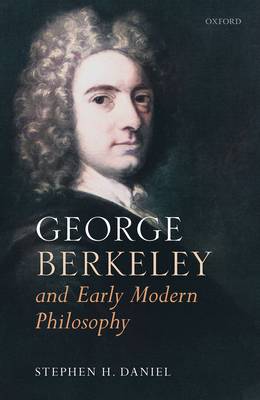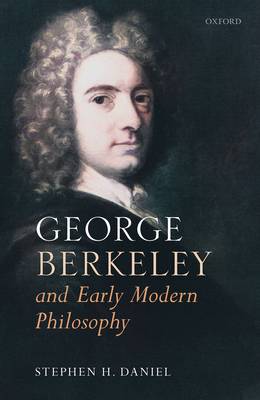
- Afhalen na 1 uur in een winkel met voorraad
- Gratis thuislevering in België vanaf € 30
- Ruim aanbod met 7 miljoen producten
- Afhalen na 1 uur in een winkel met voorraad
- Gratis thuislevering in België vanaf € 30
- Ruim aanbod met 7 miljoen producten
Zoeken
€ 169,45
+ 338 punten
Omschrijving
Stephen Daniel presents a study of the philosophy of George Berkeley in the intellectual context of his times, with a particular focus on how, for Berkeley, mind is related to its ideas. Daniel does not assume that thinkers like Descartes, Malebranche, or Locke define for Berkeley the context in which he develops his own thought. Instead, he indicates how Berkeley draws on a tradition that informed his early training and that challenges much of the early modern thought with which he is often associated. Specifically, this book indicates how Berkeley's distinctive treatment of mind (as the activity whereby objects are differentiated and related to one another) highlights how mind neither precedes the existence of objects nor exists independently of them. This distinctive way of understanding the relation of mind and objects allows Berkeley to appropriate ideas from his contemporaries in ways that transform the issues with which he is engaged. The resulting insights--for example, about how God creates the minds that perceive objects--are only now starting to be fully appreciated.
Specificaties
Betrokkenen
- Auteur(s):
- Uitgeverij:
Inhoud
- Aantal bladzijden:
- 352
- Taal:
- Engels
Eigenschappen
- Productcode (EAN):
- 9780192893895
- Verschijningsdatum:
- 23/05/2021
- Uitvoering:
- Hardcover
- Formaat:
- Genaaid
- Afmetingen:
- 150 mm x 236 mm
- Gewicht:
- 657 g

Alleen bij Standaard Boekhandel
+ 338 punten op je klantenkaart van Standaard Boekhandel
Beoordelingen
We publiceren alleen reviews die voldoen aan de voorwaarden voor reviews. Bekijk onze voorwaarden voor reviews.











